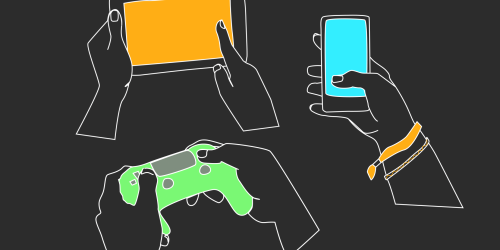Press release: What teens have to say about their health
Berlin, 30 December 2022 Press release What teens have to say about their health The newly released video wraps up two years of work and co-creation with groups of teenagers in four European countries for the project SEEDS, dedicated to healthy lifestyles. Two frames of the newly released video on the SEEDS project “Listen […]
Published at 01.02.2023
Berlin, 30 December 2022
Press release
What teens have to say about their health
The newly released video wraps up two years of work and co-creation with groups of teenagers in four European countries for the project SEEDS, dedicated to healthy lifestyles.
“Listen to our ideas and be more positive with them so we can make them possible ‘cause they can affect our health” this is the final and powerful message launched by the teenagers protagonists of SEEDS (Science Engagement to Empower aDolescentS), a science project by teenagers for teenagers implemented in Spain, Greece, the UK and the Netherlands from the beginning of 2021 to the end of 2022. To make teens’ messages to be spread and their voices to be heard by the widest possible audience, a video has just been released. You can watch it here in the languages of the project:
English: https://www.youtube.com/watch?v=MjHph8c_zoY
Greek: https://www.youtube.com/watch?v=xTMLLY5xz2Y
Dutch: https://www.youtube.com/watch?v=6DxmSfFhgGU
Catalan: https://www.youtube.com/watch?v=mXcU2-e7BHE
Spanish: https://youtu.be/hcPYUtQBO8Y
and here without subtitles: https://www.youtube.com/watch?v=jqX3-gSVl8U
Debunking the belief that teenagers are a hard-to-reach audience, SEEDS used the citizen science approach to create new experiments for healthy lifestyles, explore the potential of science, generate new knowledge whilst producing scientifically reliable results. Adolescence is a great period to promote healthy lifestyles since young adults are sufficiently mature to understand the reasons behind behavioural choices and of the long-term impact on the individual’s health and wellbeing. Nevertheless they are very rarely the protagonists of projects that concern them, and they are often the subject of a bad reputation. This leads to a gap in the scientific knowledge concerning effective interventions for adolescents and inclusive approaches to empower them to engage in healthy lifestyles.
Citizen science is a powerful approach to engage people; it is indeed the involvement, at different levels, of the public in scientific investigation and data collection. A citizen science project can involve up to millions of people collaborating towards a common goal. Projects of citizen science can be devised in different fields, typically ecology, astronomy, medicine, computer science, statistics, psychology, genetics, and in social science, humanities and the arts. The massive collaborations that can occur through citizen science allow investigations at wider scales — leading to discovery that a single scientist or group could never achieve on their own, or even help to design the scope of new research.
Teachers, health professionals, policy makers, researchers, group of citizens, and activists can participate in citizen science projects and even initiate them. If you want to do so, you can follow the step-by-step guidelines available in the guide for health professionals How to empower teens to manage their health, published on the SEEDS website.
SEEDS generated a number of results that are and will be published in specialised journals. The opportunities to exploit the SEEDS experience are countless: citizen science approach can be implemented in new projects, the intervention materials can be used in other schools, in addition to various initiatives in line with partners own goals and target audience.
Info
Website: www.seedsmakeathons.com
Twitter: @SMakeathons
Email: upi@iispv.cat


